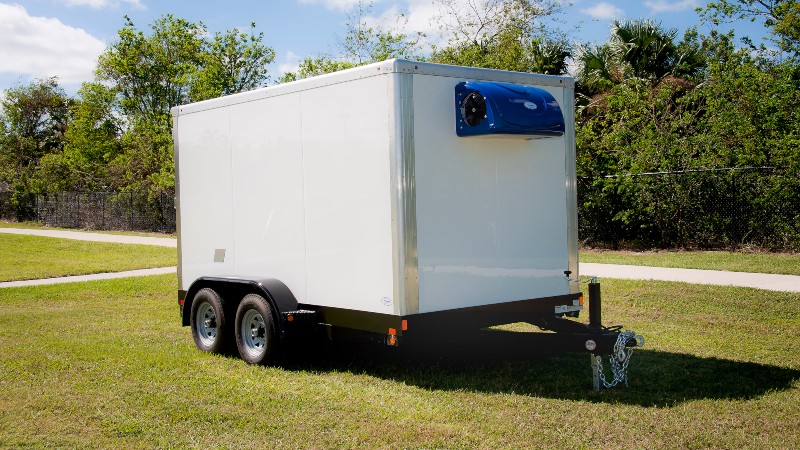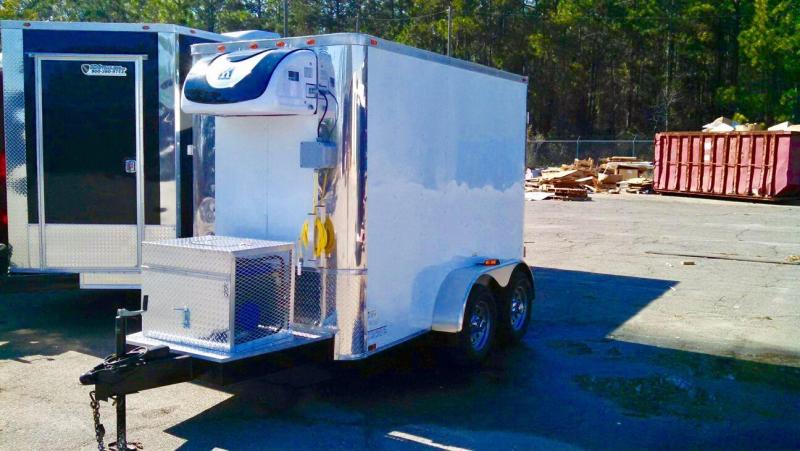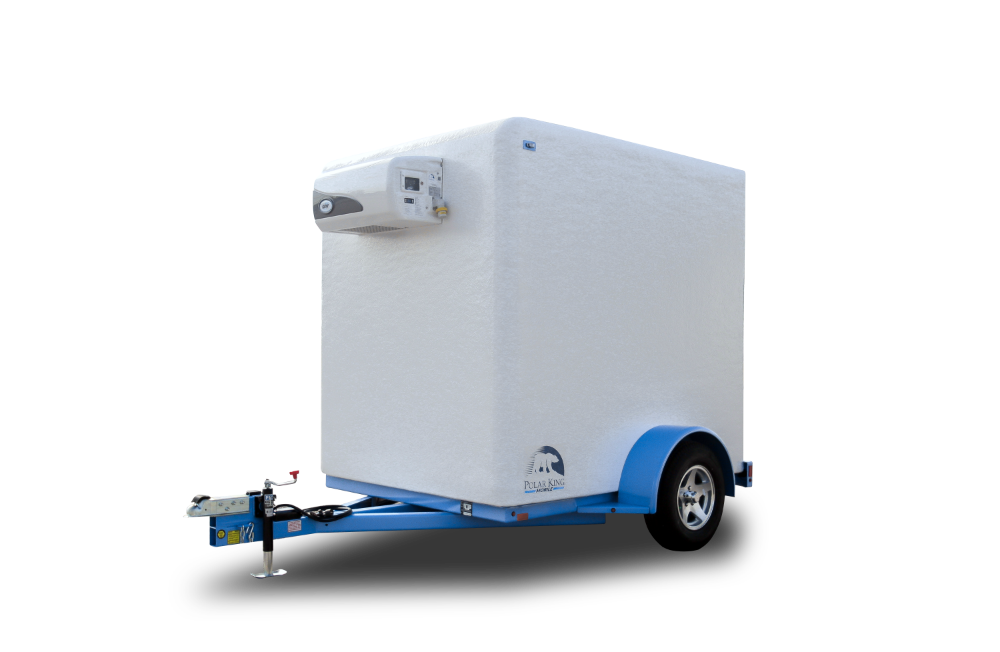Small Refrigerated Trailer-Cooler Trailers: Remain Cool Wherever You Go
Small Refrigerated Trailer-Cooler Trailers: Remain Cool Wherever You Go
Blog Article
The Ultimate Guide to Choosing the very best Chilled Trailers
When it comes to picking the perfect chilled trailer for your company demands, various aspects must be very carefully considered to make sure optimum performance and performance. From the various types of cooled trailers offered to the vital features such as dimension, temperature level control, and energy effectiveness, each facet plays an essential role in establishing the best fit for your particular demands.
Kinds Of Refrigerated Trailers

The two primary types of refrigerated trailers are reefer trailers and shielded trailers. Reefer trailers, brief for chilled trailers, are equipped with cooling down systems that proactively control the interior temperature to keep perishable items at the needed problems during transportation.

Dimension Considerations
Considering the measurements of the cooled trailer is important to ensure optimum storage space capacity and reliable transportation of perishable items. When choosing the size of a chilled trailer, it is important to take into account the quantity of goods that require to be carried. Larger trailers use more storage room, making them appropriate for businesses with significant shipping demands. Smaller trailers are a lot more cost-effective and maneuverable for organizations with lesser tons or minimal storage room at their centers.
An additional factor to consider when figuring out the dimension of the chilled trailer is the measurements of the goods being transferred. Some goods may have particular dimension needs or require to be piled in a specific way to avoid damages. Choosing a trailer size that suits the measurements of the products will assist maintain their quality throughout transportation.

Temperature Control Features
Effective monitoring of temperature control in chilled trailers is crucial for preserving the high quality and safety and security of disposable goods during transport. When selecting a cooled trailer, it is essential to think about the temperature level control features it provides.
In addition, some cooled trailers come with multi-zone temperature level control capacities, allowing different areas to keep varying temperatures as needed for like this various sorts of goods. When delivering a mix of subject to spoiling items with distinct temperature requirements, this function is especially useful. In addition, trailers with reliable insulation and temperature level harmony throughout the freight space help prevent hot or chilly areas, guaranteeing constant conditions for all products being delivered
Power Effectiveness Aspects
A vital aspect to examine when selecting a chilled trailer is its energy effectiveness, which plays a significant function in reducing operational expenses and ecological effect. High-grade insulation is vital as it helps preserve the wanted temperature inside the trailer with marginal click reference power loss. By prioritizing energy-efficient cooled trailers, businesses can not only conserve on operating expenditures but likewise lower their carbon footprint, making a favorable payment to sustainability efforts in the transportation market.
Upkeep and Solution Tips
Provided the crucial his explanation duty of energy efficiency in minimizing operational prices, it is vital to establish a positive maintenance and solution routine for cooled trailers to ensure optimum performance and long life. Additionally, checking the trailer's tires, brakes, lights, and electrical systems is necessary to guarantee secure and dependable procedure. Collaborating with a credible service copyright for routine maintenance checks and resolving any problems without delay can considerably expand the lifespan of the refrigerated trailer.

Conclusion
To conclude, picking the best cooled trailer entails thinking about numerous elements such as the kind of trailer, dimension demands, temperature level control features, energy performance, and maintenance requirements. By examining these aspects thoroughly, organizations can ensure they select a chilled trailer that meets their particular requirements and needs, ultimately resulting in a lot more reliable transportation and storage of temperature-sensitive products.
The 2 key types of refrigerated trailers are reefer trailers and protected trailers (small refrigerated trailer- cooler trailers). Reefer trailers, brief for chilled trailers, are outfitted with cooling systems that actively regulate the interior temperature to maintain subject to spoiling items at the needed conditions during transportation.On the other hand, shielded trailers are developed to preserve the temperature of the products utilizing the insulation buildings of the trailer wall surfaces. While they do not have energetic air conditioning systems like reefer trailers, shielded trailers are ideal for items that require defense from external temperature variants however do not need as stringent temperature control as disposable products.Efficient management of temperature control in chilled trailers is crucial for maintaining the top quality and safety and security of subject to spoiling products during transportation
Report this page